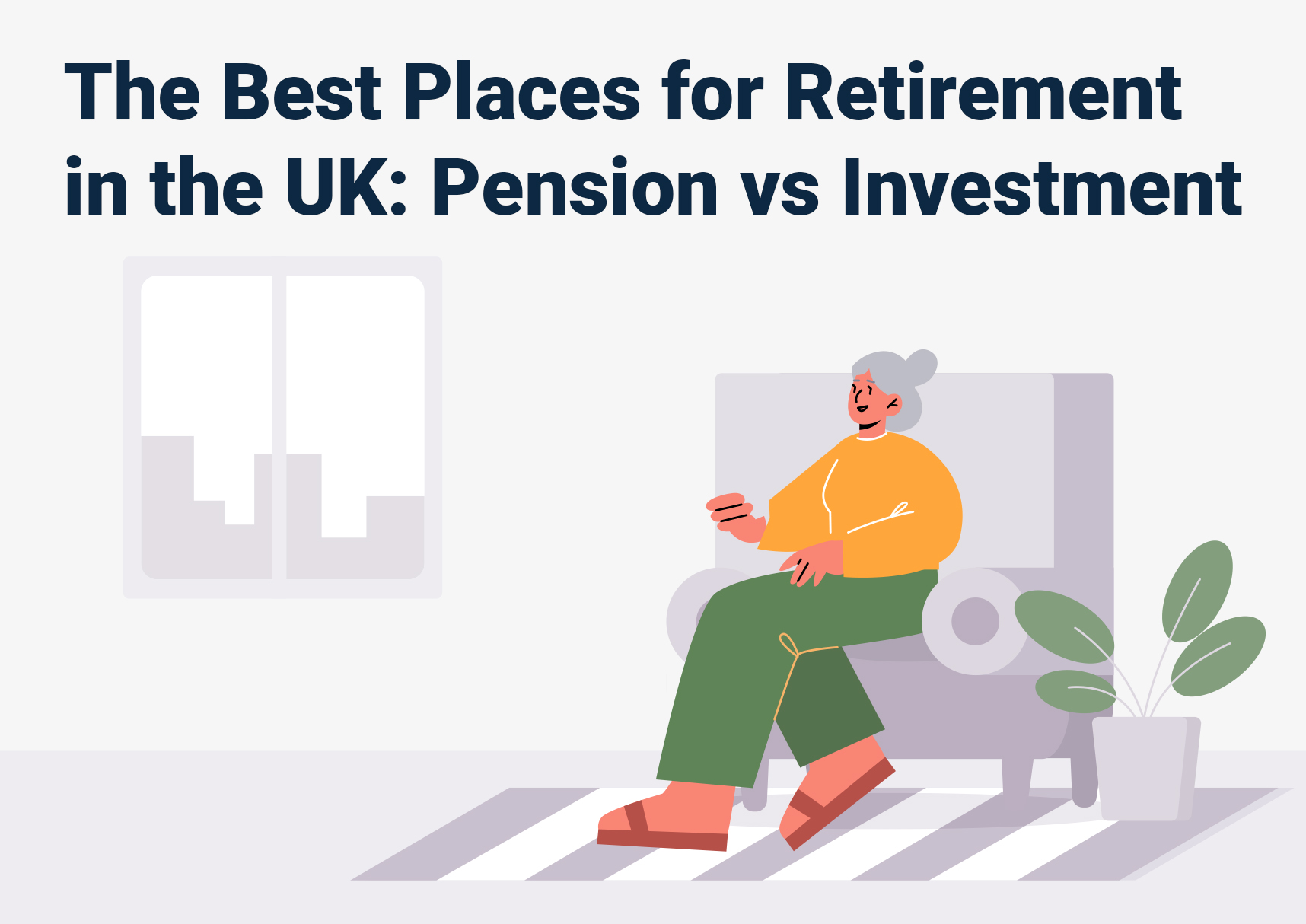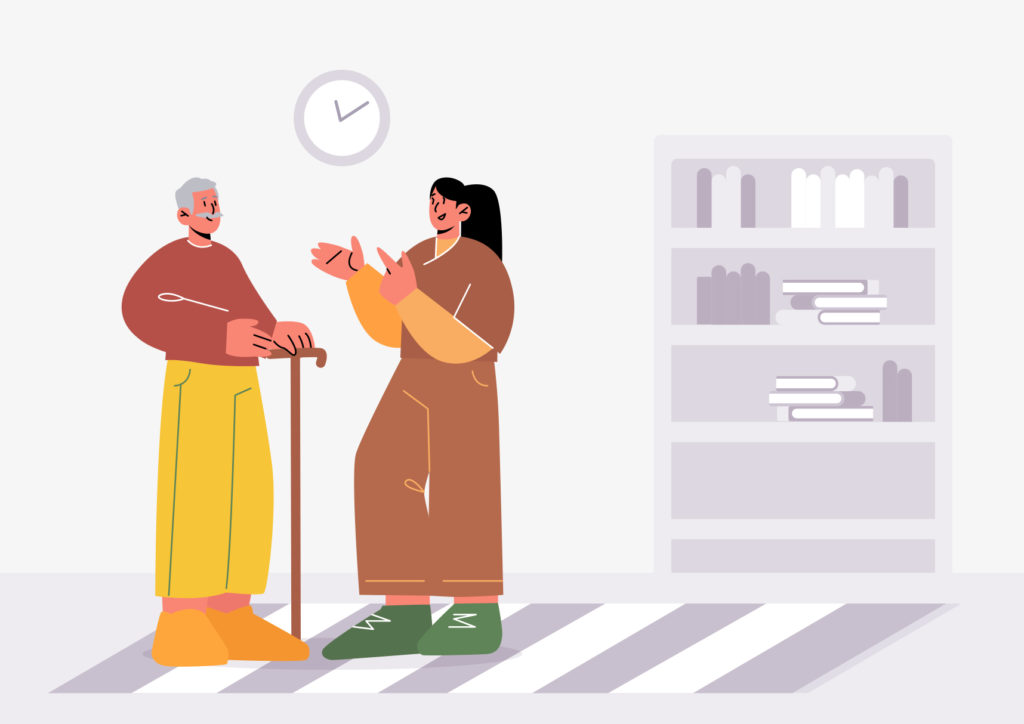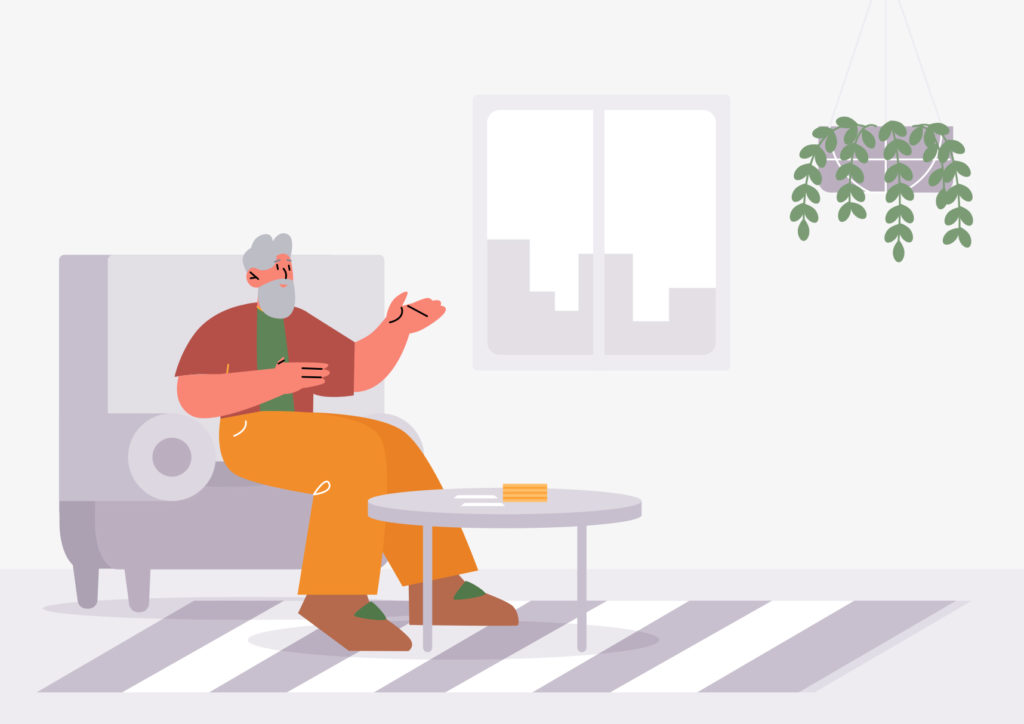The Best Places for Retirement in the UK: Pension vs Investment

When it comes to the best places for retirement, which is a better investment, putting your money into property or a pension? Both property and pensions can deliver growth. And when it comes to saving for the future, both have a role to play.
While pensions have many tax-relief advantages over property, buy-to-let property can certainly be more lucrative. Especially if you choose the right investment at the right time.
In this article, we take a look at the pros and cons of property vs pensions. As well as the best places for retirement when it comes to where to put your money.
What are the Pros of Property Investment?
Property has long been hailed as one of the best and most secure places to invest your money. This is due to being a hedge against inflation and delivering the opportunity for capital gains over time. Here are some of the reasons retirees might invest in property:
- A Bullish Market
While the UK property market has experienced the occasional slump, overall property values have continued to increase over the decades. In recent times, property values have risen to record highs and many investors have been able to capitalise on building their property portfolio. As well as selling or renting property for profit. This growth can make property one of the best places for retirement when it comes to where to put your money.
- Strong Demand
Demand for housing in the UK outstrips supply and in recent years this has helped property prices to remain buoyant. The buy-to-let market also remains high. And with higher property prices, more people are renting for longer in order to save up a larger deposit for a mortgage. This means rental income and the increase in value of a property over time can deliver sizeable profit.
- Two Sources of Income
Invest in buy-to-let property and there’s the potential for both immediate and long-term profit. This is one of the reasons it is one of the best places for retirement when it comes to investment. As well as ongoing income delivered by capital gains when you come to sell a property, you also get the benefit of monthly income from renting it out to tenants. Which can be a steady form of income that covers the cost of the property.
- Location and Timing
The success of any property depends on several factors, but the right location and timing of your investment is essential. Examine the market as a whole and local markets to make sure you are getting the best out of your investment. It’s important to look at the micro property market, because different areas of the UK present different growth opportunities.
Areas like Liverpool offer great yields of up to 10%. This is thanks to low average property markets and strong demand for rental properties. In contrast, while areas like the South East and London have high property markets, at the moment there is not much prospect for growth with average yields of 2%.
What are the Drawbacks of Property Investment?
Whether you invest in a pension or property, there are always some drawbacks to be aware of. We consider some of the risks that might mean property is not one of the best places for retirement investment:
- Risk
Property investment is not risk-free, and any property carries some possibility of things going wrong. Property does not always guarantee a good return and it’s essential to work out the costs of maintaining the property. Everything from maintenance, tax, fees and insurance – against how much you are likely to earn from monthly rental.
At the same time, the property market can go down as well as up, and property investment should be viewed as a long-term investment. Usually, to get the capital growth you expect, you should keep the property for several years. Property is probably not one of the best places for retirement funds if you want something low-risk.
- Non-Liquid Asset
When putting your money in property you cannot immediately pull it out like other forms of investment. Such as cryptocurrency and stocks. The process of selling a property takes several months. If you are relying on the profit you make from property for your retirement you’ll need to be aware that sales can fall through. Meaning you can lose money if the market takes a downturn.
- Cost
Also when solely relying on an investment property to fund your retirement, you need to calculate if the income you can generate is sufficient. If you’re going to keep a buy-to-let property and use the monthly income as your pension, bear in mind that landlords have lots of responsibilities and maintaining a property and dealing with tenants can be a lot of work. And depending on whether you still have a mortgage to pay off, this will eat into your retirement income.
- Maintenance
The ongoing costs of running and maintaining a property can add up. Refurbishment to make it more attractive to tenants and dealing with wear and tear all mean you might have to invest tens or hundreds of thousands of pounds. Especially if you have a portfolio of properties. Maintenance and unexpected costs can significantly eat into your retirement income so you’ll need to keep this in mind.
- Buy-to-Let Taxes
Even if you are retired, you’ll still have to pay tax on income earned from renting a property out to tenants. At the same time if you sell a property and want to use the money as retirement income there are still tax implications. So it’s a good idea to speak to a financial advisor.
- Changes to Landlord Taxes
If you’re planning on making a property investment for retirement there are a few tax change rules you should be aware of. Some of these may leave you to consider why property might not be one of the best places for retirement from a taxation point of view.
- Since 2015 landlords have no longer been able to offset mortgage interest payments against rental income. Meaning higher tax bills are likely to eat into profits.
- In 2020-2021, the capital gains tax allowance increased from £12,000 to £12,300, meaning a slight increase in tax free allowance. However, the capital gains tax rate is higher for landlords at 18% for basic-rate payers and 28% for additional rate taxpayers.
- Private residence relief has been changed from 18 months to 9 months. Previously if you lived in a property before letting it to tenants you wouldn’t have to pay capital gains for the time you lived in the property plus 18 months after you moved out. Now this has been cut in half.
- The £40,000 lettings relief now only applies to landlords who share occupancy with tenants.
What are the Pros of Investing in Your Pension?
An alternative to investing in property is investing in a pension. Here are some of the benefits of saving for retirement via a pension.
- Tax Relief
Because tax relief applies to pensions, it means that some money that you would have paid as tax instead goes towards your pension. Pensions can be a more efficient investment avenue than others, and with employers offering salary-related benefit schemes, you can take advantage of tax relief that doesn’t apply to other retirement investments.
- Compound Interest and SIPP
As your retirement pot gets larger, so does the interest. Building up compound interest over a period of many years can mean you benefit financially. If you invest in a self-invested personal pension (SIPP), you can choose the types of investments to include in your portfolio. You can even invest in commercial property, meaning you don’t have to choose between a pension and investing in real estate.
What are the Drawbacks of Investing in your Pension?
While investing in a pension is a safe and generally low-risk place to invest your money, there are also some drawbacks.
- Access
Usually, you can’t access your pension until you are 55, this means that the money is off-limits for several decades. If you need to access funds before you reach this milestone, it’s a good idea to have other options or investments set up alongside it.
- Slower Growth
While pensions are more secure they usually don’t make as much profit compared to other types of investments. While you will generate compound interest, other investment avenues like stocks or cryptocurrency can be more lucrative in terms of returns. With slower growth and less lucrative returns property might be one of the best places for retirement over pensions.
- Some Risk
You may choose a drawdown pension. This is when you leave the money in your pension fund invested and take regular income directly from the fund rather than using the money to buy an annuity. However, as your retirement is in the stock market there is some risk if your investments perform poorly.
Is Buy-to-Let a Good Retirement Strategy?
You may be wondering, is property better than a pension when it comes as a means to investment? Let’s take a look at some of the factors to consider when comparing pensions against property.
- Property Vs Pension: Risks
- When it comes to risk, property is considered higher risk as a form of investment than pensions. With slowing property price growth in the UK, you could be left with negative equity if the house price falls and you’ve paid more for the property than it’s worth. The property market can go down as well as up. This is why it’s important to time your property investment carefully.
- With pensions, there are instances where pension firms have collapsed, taking people’s retirement funds with them. While pensions are protected you can lose a certain amount if your employer goes bust before your retirement date (losing around 10%). Certain pension plans may fall in value if the stock market falls. Nevertheless, pensions are a long-term plan, and they’re likely to grow rather than fall in value.
- Tax
- When considering solely based on the amount of tax you are subject to, pensions come out stronger over property. Once you contribute to your pension, you benefit from tax relief in the form of income and capital gains tax. Which can increase your pension amount over the years.
- In contrast, taxes applying to landlords and buy-to-let property investors have become more onerous over the years. As well as the stamp duty tax, there is an additional 3% on stamp duty if you invest in a second property. Income from buy-to-let is subject to personal income tax depending on your tax band. When it comes to selling your property you’re likely subject to capital gains on any increase in value.
- Returns
- When it comes to the returns you can make on an investment property, recent years have proved to be very good indeed for investors. UK property prices are currently at a record high and many investors have earned a significant amount of profit by buying and selling at the right time, or investing in a buy-to-let property with high yields and a strong rental market.
A pension is unlikely to make high increases in value like we have seen with the property market in recent years. However, pensions are unlikely to decrease in value and the majority do see an increase. Even if that might be relatively small when compared to what can be made with a high-performing property.
When it comes to weighing up pensions vs property, both have pros and cons. Your financial situation and appetite for risk will have a large impact on which might be right for you.
Can I Transfer my Pension into Property?
The topic of pension property investment may have you wondering if it’s possible to use your house to fund your retirement. A house doesn’t get tax relief that a pension does and it’s one of the least liquid forms of investment. Especially if you are living in it.
Equity release on a house is possible. In equity release, you can give some of the value of your home to the provider or an equity release plan. Which will give you extra income while you continue to live there. The downside is that there are implications like a reduction in the value you or your beneficiaries would receive. Downsizing is also an option, but this will depend on the status of the property market at the time as a smaller home may have increased in value. Meaning you don’t have as much money left over after purchase as you had hoped.
Buying Property with Pension Fund
While it’s perfectly possible to purchase a house using your retirement fund, you’ll be subject to a number of taxes. Those taxes often make it less than viable to many pensioners. If you’re looking for the best place to retire, buying a house with your pension would also mean that it is subject to inheritance tax after your death. You may also choose to invest in property through a residential property fund. While this means you can put your money to work, you will need to pay fund management fees and charges.
The benefits of using your retirement fund to purchase a house are numerous. Property prices have increased steadily over the past few years, meaning property generally outperforms other types of investment. Pensions mean you have to wait until you are 55 to receive regular income. Whereas a buy-to-let property can give you an income once you start receiving rent from tenants. If you do need cash, you can begin the process of selling the house. Additionally, because it’s a physical asset it won’t vanish if the market crashes.
Some of the drawbacks of using your retirement to purchase a property include things like: there is no guarantee that it’s value will increase. If you mortgage a property and its value falls you could find yourself in negative equity. When you have a property all of your money is tied up and it takes time to sell. Property includes costs like maintenance, fees, taxes. As well as dealing with tenants. This may make it less appealing to certain individuals looking for a low effort investment.
If you need more info on how buying a second property works, this article is for you.
When it comes to pensions and property, choosing the best places for retirement investment will depend on various factors. Like your financial situation, your appetite for risk and how much time you have to spare. In the last few years property has certainly been one of the most lucrative places to put your hard-earned investment money. But the market can go down as well as up. In addition, there are plenty of elements like tax obligations and dealing with tenants that can be off-putting. Pensions, while relatively low effort and low risk are unlikely to deliver the same high returns as property. If you want to find out more about investing in property as a retirement strategy, get in touch with our experts.

